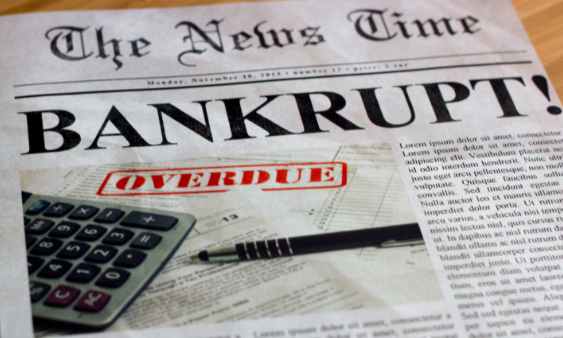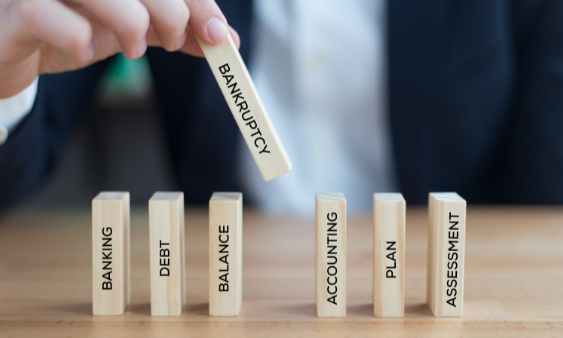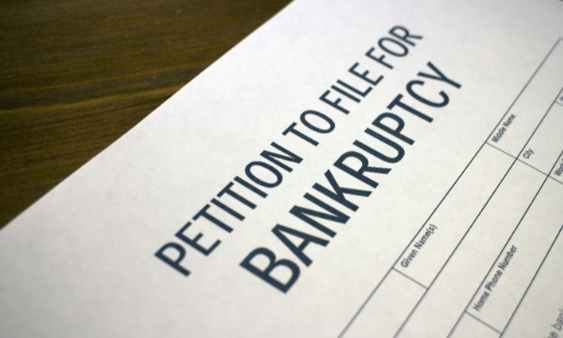No one likes to think about bankruptcy, but it is a reality for many people. If you are facing bankruptcy, you may be wondering how long it will take for your credit to recover.
The answer depends on a number of factors, but the good news is that there is hope for a bright future. With time and careful financial management, you can rebuild your credit and get back on track. Read on to learn more about how long it takes for your credit to recover after bankruptcy.
The bankruptcy process can take a toll on your credit score, but there are ways to improve your credit after bankruptcy
Bankruptcy is a difficult process, and it can have long-term financial repercussions. One of those repercussions is the toll it takes on your credit score. One step that may help improve your credit after bankruptcy is to stop using credit cards altogether; by paying for everything in cash or with a debit card, you can avoid accumulating more debt.
Additionally, if you’re able to make all your required payments on time after filing for bankruptcy, that too will help you rebuild your credit score. Setting up automatic payments for bills also helps ensure that all your payments are made on time and makes the process much easier.
Making sure all of these steps get taken will give you a stronger chance at rebuilding your credit after bankruptcy with relative ease!

One of the best ways to improve your credit is by paying all of your bills on time
When bankruptcy is declared, it can put a serious strain on your financial situation including your credit score. It takes years of hard work and dedication to erase bankruptcy from your credit history, but one of the most important steps in improving your credit after bankruptcy is to pay all of your bills on time.
It’s like avoiding bankruptcy in the first place: you have to show that you are responsible and trustworthy. Making timely payments will help re-establishing your sustainable income, improve repayment history for lenders in the future, and protect you from late fees or any other potential downfalls due to poor credit decisions.
When done consistently and correctly, paying bills on time could be one of the fastest ways to increase your credit score.
You can also try to negotiate with your creditors to have them report more positive information about you to the credit bureaus
One way to improve your credit score after bankruptcy is to try negotiating with your creditors. You can have them report more positive information about you to the credit bureaus so that it has a positive effect on your score.
A successful negotiation might also reduce the amount of money that you owe, as well as offering other terms that benefit both parties. Even if there is nothing you can do to reduce what you owe, talking with your creditors might still result in a modification of their report to the credit bureaus.
This could help you start rebuilding your credit history and make the bankruptcy feel like less of an obstacle in the future.

Another way to improve your credit is by using a secured credit card, which is backed by a deposit you make upfront
Bankruptcy can take a huge toll on one’s credit score, making it difficult to qualify for a loan or credit card. Thankfully, there are several ways of improving your credit after bankruptcy, such as using a secured credit card.
With this type of card, you make a deposit upfront as “collateral”. The amount of the deposit is typically equal to the limit on your card. That being said, using a secured credit card responsibly over time and paying off the balance in full and on time can help boost your credit score.
Bankruptcy can stay on your credit report for up to 10 years, but that doesn’t mean you can’t improve your credit during that time
Bankruptcy can be a challenging and stressful process for many, but the effects of bankruptcy don’t have to linger forever. Though bankruptcy can stay on your credit report up to 10 years, that doesn’t mean you can’t start to improve your credit score soon after.
One of the best strategies for improving your credit after bankruptcy is to make all payments on time; this will show lenders that you are capable of managing debt responsibly again. Additional financial planning such as budgeting and paying off bills in full should also be considered.
Overall, bankruptcy doesn’t necessarily have to ruin your credit permanently; with some hard work and perseverance, you may be able to rebuild your score in a matter of years!

With some effort, you can get your credit back on track after bankruptcy and start rebuilding your financial future
Bankruptcy is a difficult situation to go through, leaving many wondering if they will ever be able to rebuild their credit afterwards. The good news is that you can start rebuilding your financial future.
By understanding the bankruptcy process and taking steps to manage the debt, improve your credit score and make smart financial decisions, it is possible to get your credit back on track after bankruptcy.
Making consistent payments on time, reducing debt balances and maintaining good savings habits are all practical ways of improving your credit after bankruptcy and paving the path for a much brighter financial future.
Filing for bankruptcy can be a difficult decision to make, but it is sometimes necessary in order to get your finances back on track. The process can take a toll on your credit score, but there are steps you can take to improve your credit after bankruptcy.
Some of the best ways to improve your credit include paying all of your bills on time, negotiating with creditors, and using a secured credit card.
While bankruptcy will stay on your credit report for up to 10 years, that doesn’t mean you can’t improve your credit during that time period. With some effort, you can get your credit back on track and start rebuilding your financial future.

Erika Finn, founder of Credit Help, is an attorney who graduated from law school (JD) at University of California, Berkeley and is a member of the California Bar Association. She was a member and editor of the California Law Review and won the Prosser Prize for Legal Accounting. She holds a Master’s Degree (MFA) from the University of Southern California (USC) and a Bachelor’s degree (BA) from Indiana University- Bloomington with highest distinction.
Credit Help believes that everyone should have access to helpful, free information about how to raise their credit rating.
Articles on Credit Help are not legal advice or financial advice.